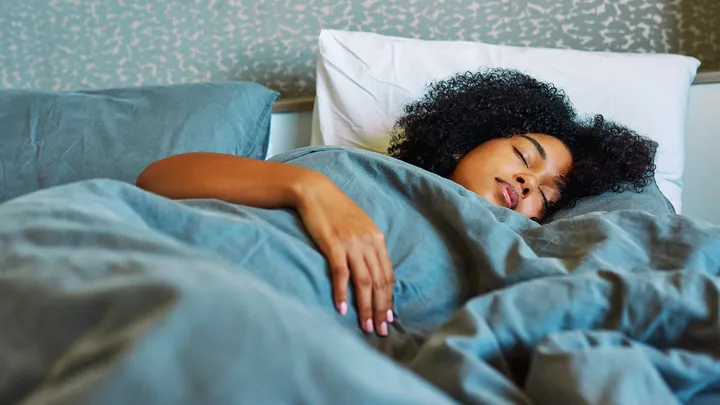Overcoming Insomnia: Natural Strategies for a Better Night’s Sleep

Sleep is essential for your body and mind to recover, recharge, and stay healthy. But for millions of people, restful sleep remains out of reach. Insomnia, one of the most common sleep disorders, can turn peaceful nights into frustrating battles. Fortunately, many natural strategies can help restore healthy sleep without relying on medications.
In this article, we’ll explore the causes of insomnia, its effects, and natural, science-backed techniques to help you fall asleep faster, stay asleep longer, and wake up feeling truly rested.
What Is Insomnia?
Insomnia refers to difficulty falling asleep, staying asleep, or waking up too early and not being able to get back to sleep—despite having the opportunity to rest.
There are two types:
- Acute Insomnia: Short-term, often due to stress or life changes
- Chronic Insomnia: Lasts at least 3 nights a week for 3 months or more
Common Symptoms of Insomnia
- Trouble falling asleep at night
- Waking up frequently during the night
- Feeling tired or unrefreshed in the morning
- Difficulty concentrating during the day
- Irritability or mood changes
What Causes Insomnia?
Insomnia has many possible triggers, including:
- Stress and anxiety
- Poor sleep habits or an inconsistent routine
- Caffeine, alcohol, or nicotine use
- Chronic pain or medical conditions
- Mental health disorders (e.g., depression, PTSD)
- Electronic screen exposure before bed
- Jet lag or shift work
Understanding the root cause is essential for finding the right natural remedy.
Natural Strategies to Overcome Insomnia
🌙 1. Establish a Consistent Sleep Schedule
Your body has an internal clock, or circadian rhythm, that thrives on routine.
- Go to bed and wake up at the same time every day—even weekends
- Avoid naps longer than 20–30 minutes in the afternoon
- Allow your body to develop a rhythm of sleep and wakefulness
🛏️ 2. Create a Sleep-Friendly Environment
Turn your bedroom into a calm, cozy sleep sanctuary:
- Keep the room cool, dark, and quiet
- Use blackout curtains and white noise machines if needed
- Choose a comfortable mattress and pillows
- Reserve the bed for sleep and intimacy—no work or screens
🌿 3. Use Natural Sleep Aids and Supplements
Before turning to sleeping pills, try these natural remedies:
- Melatonin: Supports your body’s sleep-wake cycle
- Valerian root: May help reduce anxiety and promote calmness
- Magnesium: Aids muscle relaxation and supports healthy sleep
- Chamomile tea: Acts as a mild sedative and stress reliever
- Lavender essential oil: Promotes relaxation when diffused or applied to the pillow
Always consult your doctor before starting supplements, especially if you take medications.
🧘 4. Practice Relaxation Techniques
Winding down your mind is just as important as resting your body. Try these before bedtime:
- Deep breathing exercises (like 4-7-8 technique)
- Progressive muscle relaxation
- Mindfulness meditation
- Gentle yoga or stretching
- Gratitude journaling to release anxious thoughts
📵 5. Reduce Screen Time Before Bed
Blue light from phones, tablets, and TVs suppresses melatonin, the hormone that helps you sleep.
- Avoid screens for at least 1 hour before bedtime
- Use blue light filters or night mode if necessary
- Read a physical book or listen to calming music instead
☀️ 6. Get Morning Sunlight
Natural light helps regulate your circadian rhythm.
- Spend at least 15–30 minutes outdoors in the morning
- Open your blinds as soon as you wake up
- Combine sunlight exposure with light exercise like a morning walk
☕ 7. Watch What You Eat and Drink
Diet affects sleep more than most people realize.
- Avoid caffeine after 2 PM
- Limit alcohol, which may disrupt deep sleep later in the night
- Eat light in the evening—heavy meals close to bedtime can cause discomfort
- Try sleep-friendly snacks like bananas, almonds, or tart cherry juice
When to Seek Medical Help
While many people improve with natural remedies, some cases of insomnia may require professional care. Consult a healthcare provider if:
- You have chronic insomnia that lasts for weeks
- You frequently feel sleepy or drowsy during the day
- Insomnia interferes with your work, relationships, or mental health
- You suspect an underlying medical or psychiatric condition
Treatments such as Cognitive Behavioral Therapy for Insomnia (CBT-I) have high success rates and can be combined with natural methods.
FAQs About Natural Insomnia Solutions
1. How long do natural sleep aids take to work?
Melatonin and herbs like valerian typically take 30–60 minutes to have an effect.
2. Can exercise improve sleep quality?
Yes. Regular exercise promotes deeper sleep—but avoid intense workouts close to bedtime.
3. Is it okay to nap if I can’t sleep at night?
Limit naps to 20–30 minutes in the early afternoon to avoid disrupting your night sleep cycle.
4. Does warm milk help with sleep?
Yes. Milk contains tryptophan, which may aid relaxation, especially if part of a calming bedtime routine.
5. What’s the best bedtime for adults?
Sleep experts recommend between 9 PM and 11 PM for optimal alignment with natural circadian rhythms.
6. Are sleep-tracking apps helpful?
They can give you insight into patterns, but the data isn’t always medically accurate. Use them as a guide—not a diagnosis tool.
7. Should I stay in bed if I can’t sleep?
No. If you can’t sleep after 20 minutes, get up and do a relaxing activity until you feel sleepy.
8. Can mindfulness really help with sleep?
Yes. Mindfulness meditation has been proven to reduce anxiety and improve sleep quality by calming the nervous system.
Conclusion
Insomnia is frustrating, but it’s not unbeatable. By building healthier routines, calming the mind, and supporting the body’s natural rhythms, you can reclaim restful sleep naturally. A few mindful changes can lead to deeper, more restorative rest—without pills or side effects.
Remember: better sleep leads to better health, better moods, and better days.

